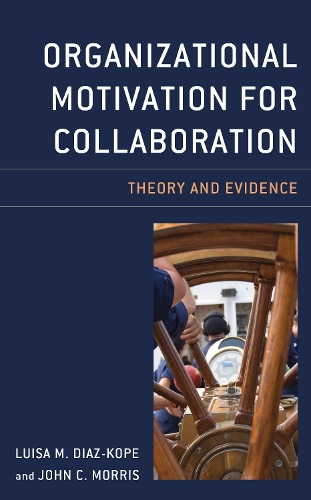
Organizational Motivation for Collaboration: Theory and Evidence
(Hardback)
Publishing Details
Organizational Motivation for Collaboration: Theory and Evidence
By (Author) Luisa M. Diaz-Kope
By (author) John C. Morris
Bloomsbury Publishing PLC
Lexington Books
25th September 2019
United States
Classifications
Professional and Scholarly
Non Fiction
627
Physical Properties
Hardback
198
Width 161mm, Height 229mm, Spine 19mm
481g
Description
This book determines that watershed protection and restoration in the 21st century requires adaptive and responsive strategies that incorporate regulatory frameworks in conjunction with community stakeholder engagement. The severity and pervasiveness of watershed pollution require building resource capacity through the formation of multi-sector strategic alliances. Given the complexities of watershed management and the need to leverage resources to achieve better environmental outcomes, understanding the role of motivations in watershed collaboration is vital to the efficacy of watershed protection and restoration endeavors. The authors use an in-depth case study to investigate the social processes and the motivations that drive organizations operating within a shared local watershed to voluntarily direct their resources and participate in watershed collaboration.
Reviews
In a time of increasingly scarce resources and unpredictable climate change, the management of a healthy watershed depends on the partnership between an array of public and private actors. Diaz-Kope and Morris explore these linkages and fill a critical need in the literature by offering insight into how and why sectoral differences influence motivation to collaborate in watershed management. The result is a substantial examination of watershed management collaboration that will undoubtedly be of interest to scholars, students, and those interested in the preservation of some of our nations most fragile resources. -- Martin Mayer, University of North Carolina at Pembroke
Organizational Motivation for Collaboration: Theory and Evidence provides a nuanced understanding of the organizational motivations that drive collaboration in the case of the LynnHaven River, VA watershed. This in-depth study adds value to research and practice in the challenging policy area of non-point source water pollution. Its unique focus on the differences in perspective across public, private and nonprofit sector organizations distinguishes this approach from other work on watershed collaboration. -- Christine Reed, emeritus, University of Nebraska-Omaha
Author Bio
Luisa Diaz-Kope is assistant professor of political science at the University of North Georgia. John C. Morris is professor of public administration and public policy at Auburn University in Auburn, Alabama
